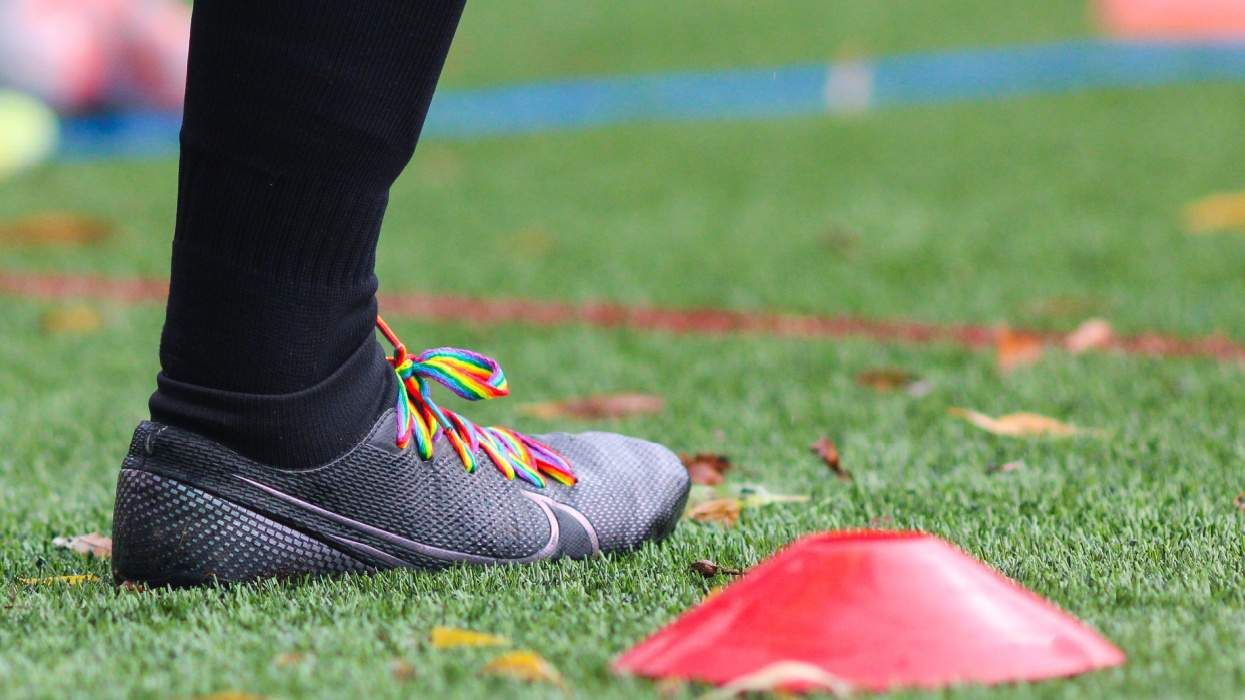Last week, the Taliban announced that they would not recognize LGBTQ+ rights after their return to power in August. Now the international LGBTQ+ organization Rainbow Railroad says the Taliban have a "kill list" and are identifying and targeting queer people.
"This is a really scary time to be in Afghanistan," Rainbow Road Executive Director Kimahli Powell told France 24. "We now know for sure the Taliban has a 'kill list' circulating, identifying LBTQI+ persons."
Powell said the Taliban may have used evacuation lists of vulnerable people that foreign organizations had put together as they attempted to help individuals escape the country.
"[Some] individuals who have reached out to us have told us about how they've received a mystery email from someone claiming to be connected with Rainbow Railroad asking for their information and passport. That's how we know the information has been leaked," Powell explained.
On Friday, Reuters reported a Taliban spokesperson said the organization would not be considering LGBTQ+ rights in their framework of human rights. The spokesperson was telling the news service that international community should unfreeze the government's cash that was frozen when the previous government was ousted.
The spokesperson said human rights would be observed in Afghanistan but within the group's interpretation of Islamic law -- which would not include LGBTQ+ rights.
"LGBT... That's against our Sharia law," he said.
The news came hours before a group of 29 LGBTQ+ Afghans arrived in the U.K.
"Everything collapsed after the fall of Kabul. I was very depressed. I was counting my days to die," one LGBTQ+ person who arrived Friday told the BBC. "Everything is new to me here. A new lifestyle, a new language and culture. I am a bit nervous about my future, and I am trying to figure out where to start my new life, but man, I feel safe and free! This is amazing."
"The LGBTI community was a secret underground community, but we knew each other and our network, and if one of us got arrested, they could have found the rest of us," he added. "Kabul is not a big city, and with the way the Taliban are ruling the country, it was not that difficult to find high profile LGBTI people. We also heard a couple of people were arrested."
\u201cNEWS: an initial group of LGBT Afghans have arrived safely in the UK.\n\n\ud83c\udff3\ufe0f\u200d\ud83c\udf08\ud83c\uddec\ud83c\udde7 The UK is committed to promoting LGBT rights globally and helping those across the world facing persecution.\n\nThank you to @stonewalluk, @RainbowRailroad and @UKHomeOffice who are supporting this project.\u201d— Foreign, Commonwealth & Development Office (@Foreign, Commonwealth & Development Office) 1635579661
The weekend's group is hopefully just the latest group of LGBTQ+ Afghans to come to the U.K., advocates have said.
Gianluca Di Caro, chief executive of the British and Irish Boxing Authority, said that 250 boxers and their families are still in Afghanistan and a significant number of them LGBTQ+. "We need to get them out quickly," Di Caro told The Observer. "We've already had female boxers who have been assaulted by the Taliban. In some cases Taliban have gone into some of the girls' houses."
The effort to get the queer Afghans to the U.K. involved the British government, LGBTQ+ rights group Stonewall, and Rainbow Railroad.
\u201cEarlier today, @RainbowRailroad facilitated the evacuation of 29 #LGBTQI+ Afghans into the United Kingdom. https://t.co/xYLbk1ahsQ 1/6\u201d— Kimahli Powell (@Kimahli Powell) 1635552037
"We are proud that our campaigning and collaboration has resulted in the first group of LGBTQ+ Afghans arriving here in the U.K. to resettle and rebuild their lives, and for LGBTQ+ people to be recognized as a priority group for resettlement," Stonewall's chief executive, Nancy Kelley, said in a statement.
The British government said it would continue to work to get vulnerable people out of Afghanistan. "We played a key role getting these people out and will continue to do all we can to help at-risk Afghans leave the country," U.K. Foreign Secretary Liz Truss said.
Since the Taliban retook the country, stories of attacks on LGBTQ+ people have grown in number. Queer people in Afghanistan have told media they hope to find a way to escape the Taliban's new rule. While homosexuality was still punishable by death in the years since the Taliban fell, the punishment hadn't been applied since 2001. During the Taliban's rule in the 1990s, gay men were sentenced to death in Kabul, Kandahar, Herat, and elsewhere in the country.
















